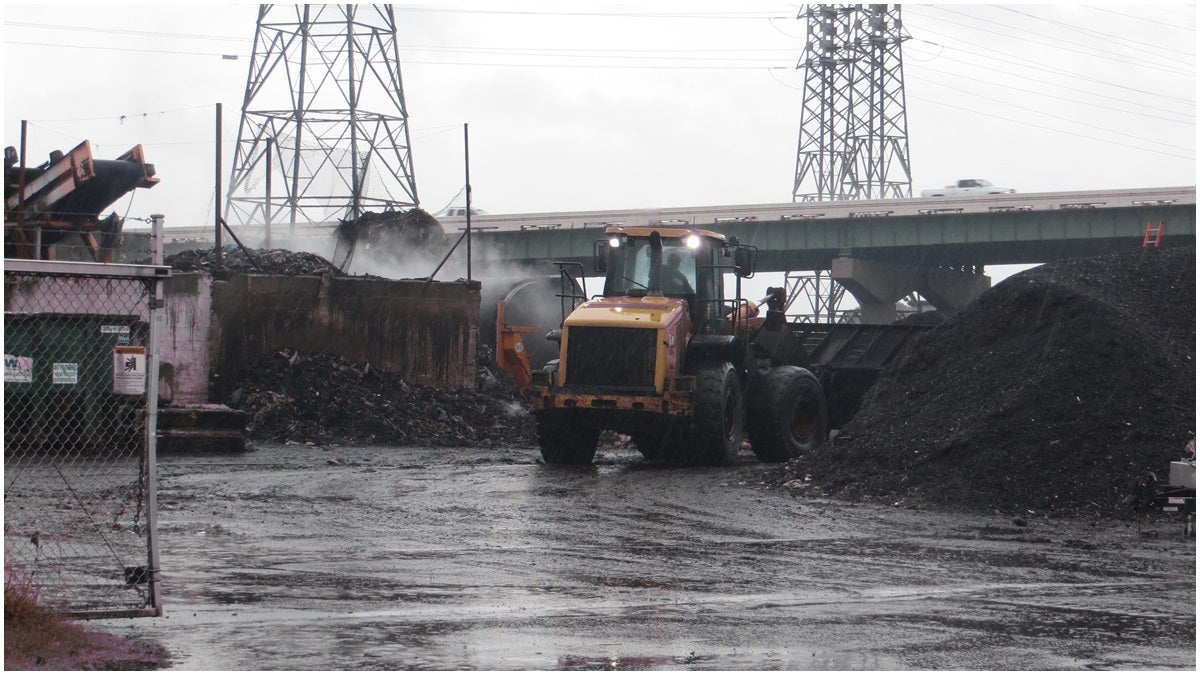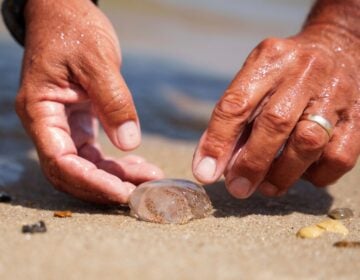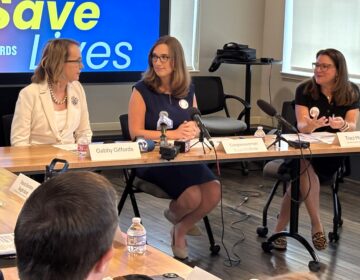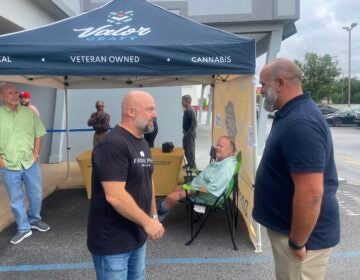Delaware compost facility will not appeal DNREC order, prepares for closure [video]

The Peninsula Compost facility in Wilmington (Shana O'Malley/for NewsWorks)
The composting company now set to close near the port of Wilmington says the smelly recycling businesses isn’t sustainable.
A spokesman for Peninsula Compost in Wilmington said the company will continue to process existing materials on site as they prepare to close the business.
DNREC Secretary David Small released a Secretary Order this week, forcing the facility to close by early 2015.
“We do not plan to appeal the state’s order,” said Andrew DiSabatino, executive vice president of EDiS Company and spokesman for the facility. “Our plan is to work with the state as we complete processing the material already composting on our property and close down the business.”
The organic waste recycling center opened in 2009 and has faced harsh criticism from residents and businesses in Wilmington for the foul smells it produces as it processes compost. Secretary Small said the facility has failed to meet standards for reducing the odor.
Last month the company voluntarily stopped accepting materials such as food, yard waste and wood waste at the facility in an effort to minimize the impact the facility had on the community.
DiSabatino said there were a number of factors that lead to the closure.
“Customers did not properly sort their wastes. Contamination levels – namely the presence of plastics in the organic waste we received – were high and this affected our ability to process this waste and at times create the grade of compost we wanted to produce.”
DiSabatino added that recycling businesses are challenged in a tough market.
“For example, the industry often finds that it costs more to process a ton of glass than the market pays for that processed ton,” he said. “This is an unsustainable business model and suggests that it may be time for our communities and states to decide whether to put resources behind their desire to divert low-value materials from landfills.”
The compost facility processes about 115,000 tons of waste per year. Now those customers will have to find new composting facilities or the waste will be sent to landfills.
“Our compost customers that include landscape companies, contractors, nurseries, and schools will have a big void to fill,” he said. “Even some of the new initiatives by DNREC regarding the use of organic compost in place of the more expensive Sphagnum imported from Canada will be affected.”
Compost is used as an alternative to fertilizers and pesticides and is used in gardens, on lawns and turf, and in commercial agriculture.
WHYY is your source for fact-based, in-depth journalism and information. As a nonprofit organization, we rely on financial support from readers like you. Please give today.




